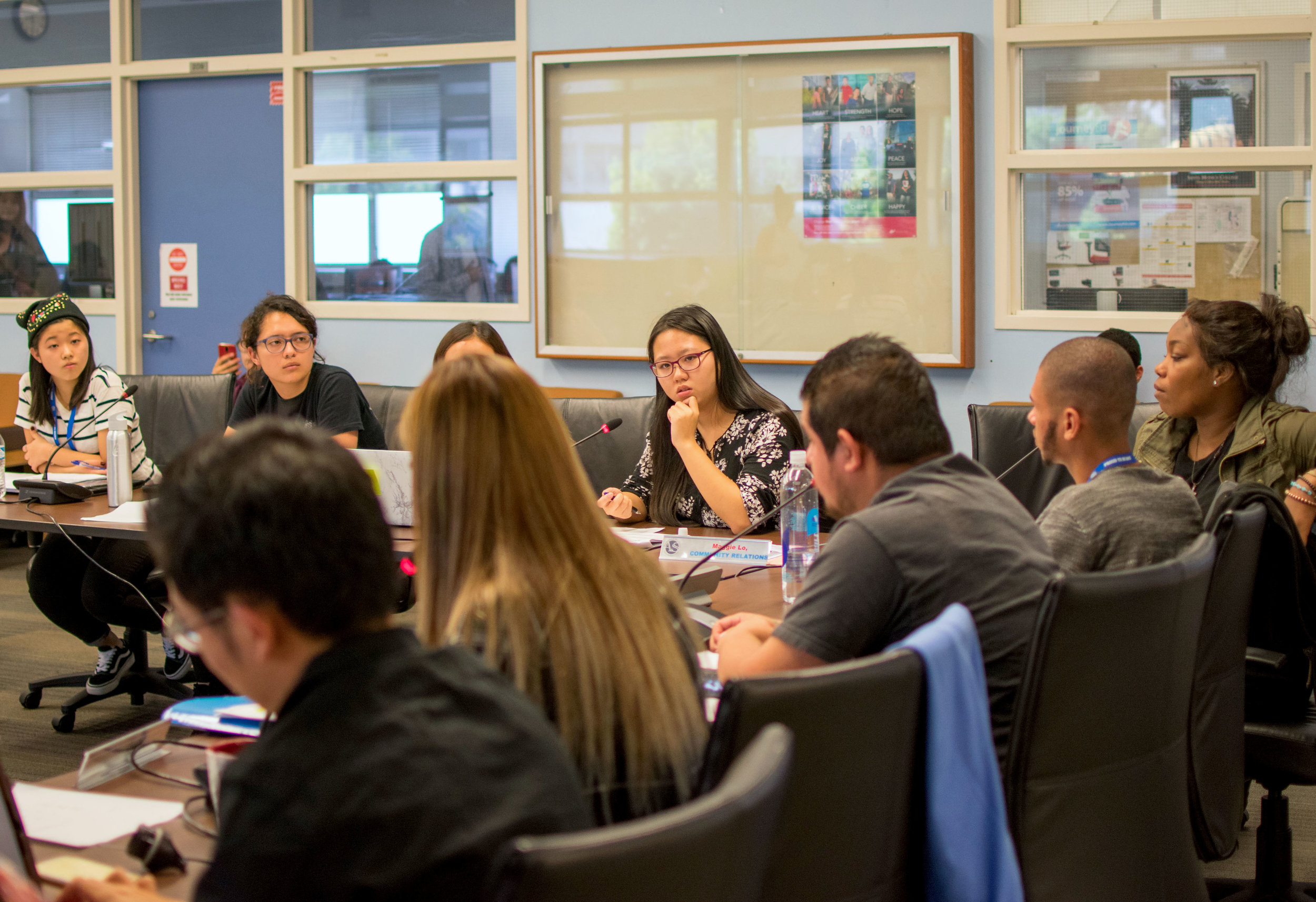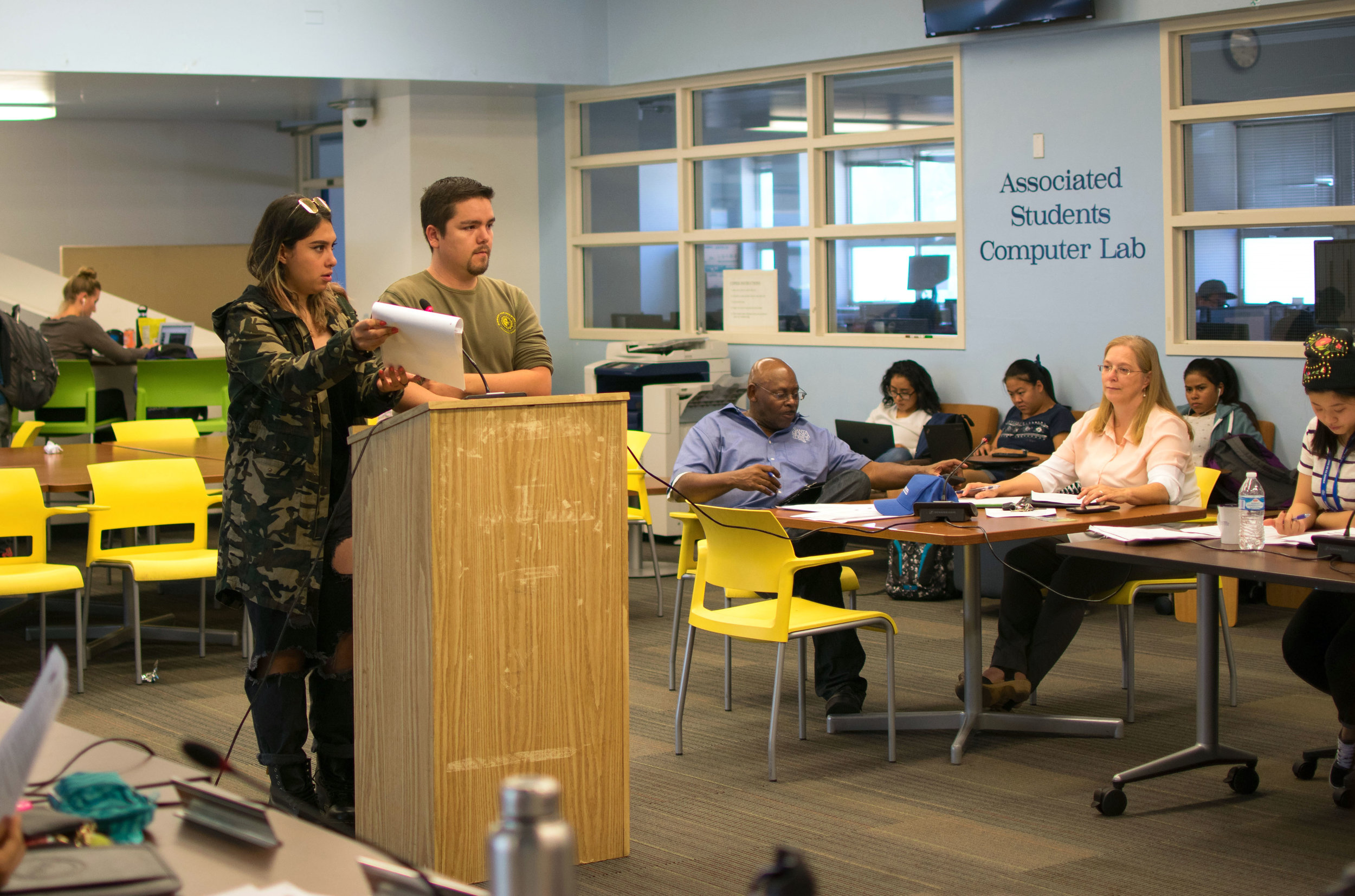A.S. Prepares for Smoother Turnover
Every Fall semester, a newly-elected Board of Directors commandeer the Associated Students of Santa Monica College and a fresh vision takes root, giving a new voice to the student body with the goal of enhancing campus life. This year however, the incoming A.S. directors mentioned that they had a difficult time transitioning into their new positions.
As a result, the Fall 2017 A.S. board hoped to increase student body engagement with their government and to make transitioning easier for future A.S. boards by sharing more on what they do online.
Preceding directors, such as former President Terrence Ware Jr., have previously criticized the current A.S. board because its members did not sufficiently communicate with the outgoing board members on their roles. “If I was someone running for President of the United States, I would still go talk to Trump, because I need to know what's happening and what his administration has done," Ware said. "I would still have to have that conversation with him so I can be well informed and make good decisions on behalf of my constituents."
With the new board in place, several directors believe that advice from the previous board members was instrumental to their successful transition. Saori Gurung, Director of Activities, did not run for any positions, citing unpreparedness. But this past spring, she worked in the A.S. as primary commissioner to the Vice President to gain experience in student government. This experience left Gurung feeling more prepared than some other candidates, she said.
“Before taking the position, I was definitely ready. I prepared myself for it and I knew what was coming up, although it was kind of hard sometimes,” Gurung said. “Because trying to balance between my studies and A.S. is quite challenging.”
However, others like Director of Sustainability Alexa Benavente, felt unprepared. "As students, we don't really get trained to be a director,” Benavente said. “We do have a retreat, but that doesn't really train you to be a director or fill out proposals, [etc]. It's still quite a hustle right now for me trying to figure out the budgets and what the students want, and I'm trying to actually do what I promised to the students."
The A.S. retreat, an annual three-day affair that runs for 11-hours a day, is meant to introduce the new board to their supporting faculty, advisors, counselors, and professors. It also provides the board the opportunity to meet the school’s President, Vice President, and Board of Trustees. Workshops at the retreat cover subjects such as Title IX, which prevents sex-based discrimination in education, and the Brown Act, which gives the public a right to attend and participate in meetings.
Director of Publicity Stephanie Hernandez also expressed her difficulty in transitioning into her new position. "At first, when I thought about publicity, I thought it was mainly just about social media and fliers, but it's way more than that,” she said. “It's paperwork, it's talking to people, it's getting informed, it's going to clubs to talk. So I was not prepared."
It took her about two months to get up to speed. Hernandez noted that she did not receive much help from the outgoing government. “The previous director of publicity left a letter just saying 'Good luck, everything will be okay, you'll be great', Hernandez said. "So that was really appreciated, but that was it. That's everything we had with the previous board...”
A.S. Vice President Edgar Gonzalez echoed Benavente’s frustrations about the lack of training, even with the retreat. "I just felt like it could have been better if I would have known the details of how to do my job specifically," Gonzalez said. "But I guess we didn't have that amount of time."
Gonzalez also corroborated Hernandez’s statements that the notes left by previous directors lacked a lot of details, but said the responsibility does not fall on the previous government to prepare the new team. "They leave you a letter before you leave... but, you know, I felt like it just wasn't proper,” Gonzalez said. “I feel like it's not really their responsibility to train us or show us how to do the job. It's for us to figure out, right?"
The process for transitioning between A. directors isn’t set in stone, however; the board is free to improve on the procedures as they see fit. A.S. Secretary Ryan Ang has a plan to do just that; for him, the issue comes back to the new Board of Directors’ founding principles: efficiency, engagement, and equity. Ang intends to introduce a system of “institutional memory” for the A.S., so future A.S. boards can look back on previous events and see what they can improve on.
Like Ang, A.S. President Jennifer Chen also has plans to improve the future A.S. directors—though she prefers to attack the problem from the engagement side rather than through increasing efficiency like the secretary does. Chen mentions the new A.S. YouTube channel as a way to reach students through social media.
Chen said an informative video can help people be more interested in understanding their school’s bylaws and communicating more with their government. "So, if we make a video and make everything so clear, if we explain and answer some general questions that people have, I think that is the most effective way to have the new board or students understand what A.S. is doing,” Chen said.
Chen hopes the channel can not only show students what A.S. is up to, but also have videos informing potential candidates on the ins and outs of each position. "It's not only for students but for the new directors as well. So maybe before they run for the position they can go on the YouTube channel and get the information, get to know what programs A.S. has," Chen said.
Regarding her Directors’ performances though, Chen is optimistic for this semester. “I would say we're actually doing pretty good in the beginning of the semester, even though we have some concerns that A.S. is not doing much this year," Chen said. "The transition is tough in the beginning, but right now we're getting used to it, and each director is getting comfortable with their position and we're starting to do more."


